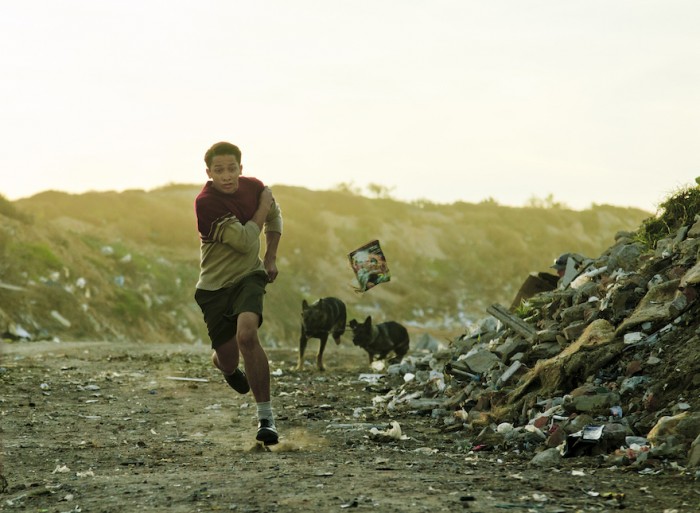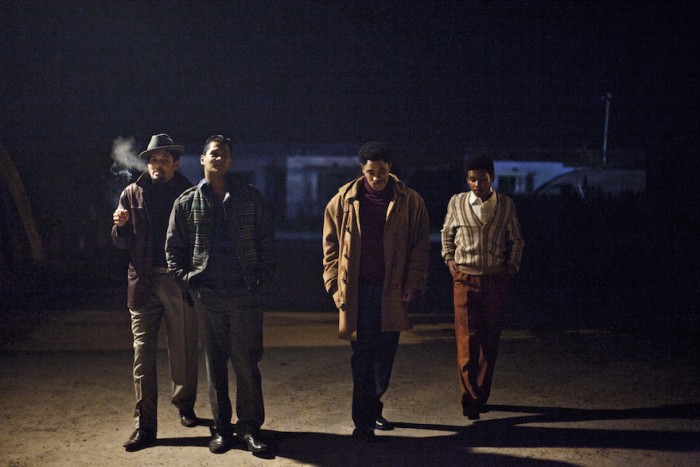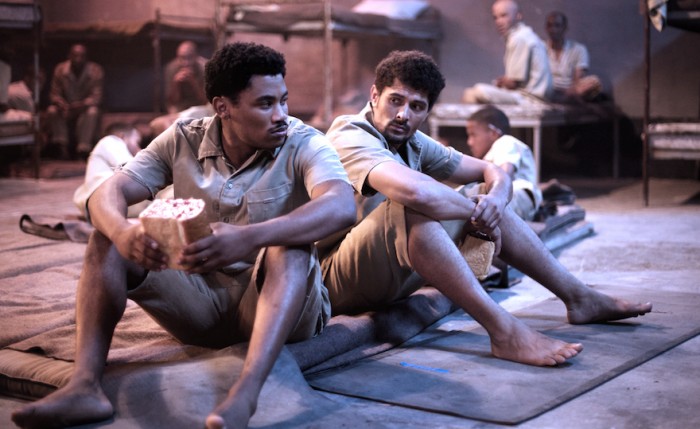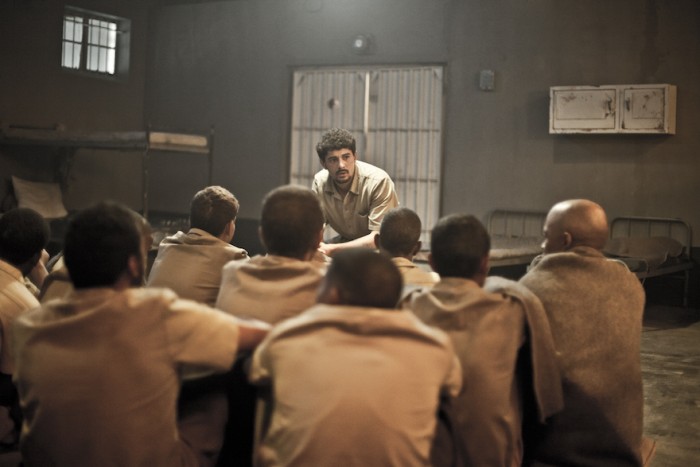The trailer opens with a pact. Four teenagers, unable to avoid the gangsterism of South Africa’s impoverished Cape Flats, form a gang of their own, first for protection then for survival. Set in the 1960s, Noem My Skollie (Call me thief) is the story of friendship, betrayal, forgiveness, acceptance, and the desire for a better life. It’s cinematic gold but it’s also the lived experience of screenwriter John Fredericks.
“It was a violent place,” says the 70-year-old of his hometown of Athlone in the Cape Flats. “We had our heroes. Our idols were these old street fighters. A flick knife was the every day.”
As depicted in the movie, an act of violence drove Fredericks and his friends to seek out the protection of a brotherhood. Spiralling into a life of petty crime, Fredericks found himself in prison for the first time at the age of 17. Once there, he learned that fighting his battles with force would no longer cut it. Instead, he harnessed another skill to secure his safety: his ability to tell stories.
“I'll never forget the day. It was winter. I arrived there on a Saturday afternoon and it was raining. There were puddles of water in the courtyard,” says Fredericks recalling the day he entered what is now the infamous Pollsmoor prison. “We were stripped of our clothes and given prison clothes: short pants, no shoes no socks, no underwear and a flimsy shirt.”
At the time, juvenile criminals and adult criminals were not separated in the prison. “The pants were too big so I had to hold up this pants with my one hand and in the other hand I held a KatKop (half of a loaf of bread with jam) and my nose was running, so I had to wipe my nose on my jacket,” he recalls. “They made me so small. You’re nothing, just a card and a number.”
To avoid physical and sexual abuse in the prison system, an inmate's only choice is to become a member of the prison’s infamous Numbers gang, which is made up of three gangs; 26s, 27s and 28s. Faced with this brutal reality, Fredericks bartered his talents as a writer and storyteller to escape the violence.
“I told them [the gang leaders] I would rather push my time without taking a number,” says Fredericks, adding that gang life in prison often meant committing further crimes and attracting harsher sentences. “I told them I can write letters, I can read and I can tell stories.”
Fredericks says he became the "prison cinema”, adding the names of fellow inmates into his fictional narratives about cops and robbers, mafia skits and more. His experience on the inside would inform Noem My Skollie, the first major film to be set on the Cape Flats and written and directed by people who grew up there.
Its location is culturally significant because, during Apartheid, South Africa’s race-based system of segregation, coloured and black people were removed from their homes and forced to live in the Cape Flats. The highly-policed, densely populated area was a breeding ground for poverty, gangsterism and violence. Today, 21 years after the fall of the oppressive regime, the Cape Flats is still home to the same challenges and is often depicted in the media as a violent place. Frederick’s story escapes the stereotypical narrative. It is a coming of age tale about a gifted storyteller.
“The most beautiful thing about this film for me is the fact that its protagonist, Abraham Lonzi, continuously uses storytelling as a way to escape the perils of his grim situation. Storytelling literally saves his life,” says film’s director, Daryne Joshua. “How can that not resonate with any filmmaker?”
Also from the Cape Flats, Joshua says the film resonates with him because his craft paved his escape from a harsh environment.
So, the story of these boys – “The Young Ones” (Abraham and his gang) - is also partly mine, and that of all my friends and family who experienced with me those mean streets... but above all, this bittersweet portrait of a gangster must leave the audience with hope. Because that’s what it is based on – the true story of John W. Fredericks. A man, who was a product of his environment and made a few bad decisions, then suffered, but in the end survived to beat the odds - an example of what’s possible, a beacon of hope.”
Noem My Skollie (Call me thief) has been chosen as South Africa’s official selection for the 89th Annual Academy Awards (Oscars) in the category for Best Foreign Language Film Award.










